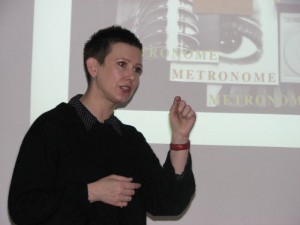WORLD OF ART
Laboratorium of Curatorial Practices
Season 10: 2006/07
Seminar – Workshop No.3
February 6, 7, 9, 10 and 11, 2007
Cankarjev dom, M3/4 Hall, Prešernova 10, Ljubljana
| The workshop Plan for a Mobile Faculty of Arts was the result of collaboration of two institutions: SCCA -Ljubljana, and Maska. Both institutions, each in its own field, carry out already for a number of years the educational programmes World of Art and Performing Arts Seminar. This was our second collaboration and we certainly hope that it will grow even deeper and thus enrich the contents of particular educational programmes.The aim of the workshop was mainly to instigate the individuals who took part in it to reflect upon different models of education that could contribute towards the founding of a contemporary arts institution that, in turn, would bring some novelties in our milieu. The individuals who took part in the workshop came with entirely different working experiences that proved to be crucial for the successful outcome of the workshop.
Clémentine Deliss works for a number of years in the frame of art academies. In the last four years, she has been involved with the issue of a new academy. She has conceived her Future art academy first and foremost within different art institutions in which she worked. Throughout all the years of her research project, she has been focused on the reflection on modes, contents and structures that would fit the idea of establishing the academy. In years, she has come up with remarkable conclusions and questions that she formulated in three segments for the workshop Plan for a Mobile Faculty of Arts: 1. The cartography of mobility. 2. The positions of artist and curator as polymathic agents. 3. Defining future faculties of knowledge. The Future academy or any kind of institution that would deal with education certainly indicates an aspiration towards mobility and, connected to this, the international linking of informal educational programmes. The main objective would be to transfer the content from one space to another, which is the key prerequisite for establishing the institution of the future, aimed towards polymathics and diversity. It was through those questions that the workshop participants, under the mentorship of Clementine Deliss, have managed to conceive a proposal for the functioning of the future institution in which they would work themselves, both content- and organisation-wise. The final product of the workshop Plan for a Mobile Faculty of Arts is an imaginary constitution of an art institution of the future. The sum of the ideas of the workshop participants is embodied in the image of the space of Pension or Guesthouse. The main advantage of this art institution is independence and a lesser degree of relying on public subsidies. The organisational structure is divided into three groups: moderators (coordination and institution management); researchers (programme collaborators) and audience (people of various profiles). Formally, the institution is divided into service and production sectors, which are not strictly separated. The service sector is basically a platform for gathering financial means that would be used in the production sector. The accent is on the production of long-term projects, whether they would be lectures, workshops, research projects, exhibitions, performances or activities in other artistic fields, depending on moderators’ preferences. A transcript (pdf, 161KB) of the public presentation of A Project for Mobile Art School, Cankarjev dom, February 11, 2007-04-27. The theatre play Das Gasthaus Polymath by Maja Šorli was created during the workshop (pdf, 140kb) (in Slovene). The participants of the workshop were: The workshop was prepared in collaboration with Maska Institute, Performing Arts Seminar, season 2006/2007. |
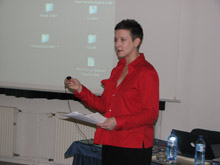 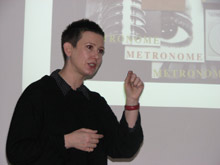 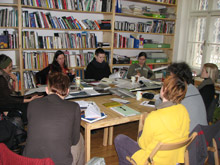 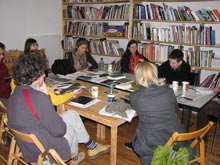 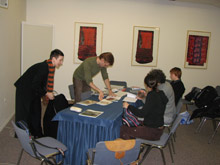 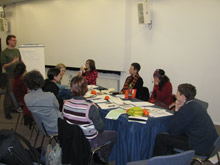 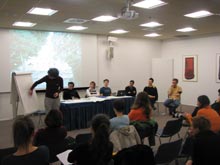 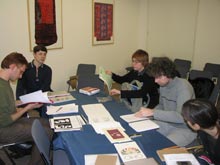 |
